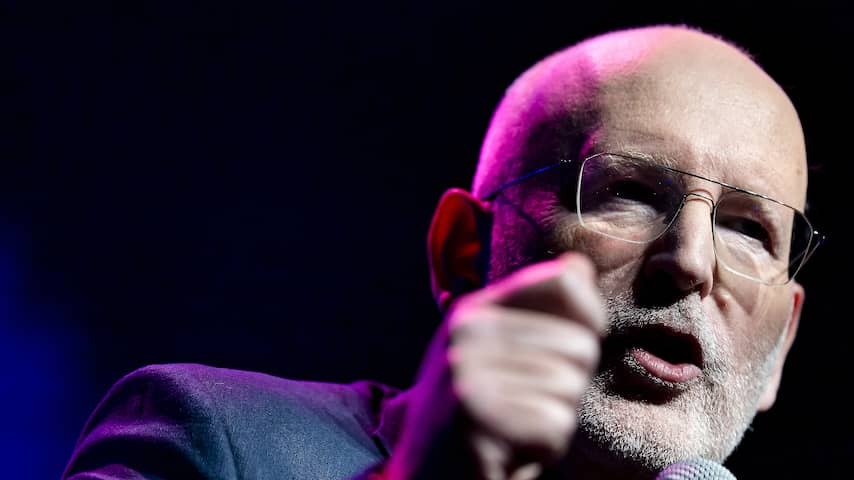
GroenLinks-PvdA leader Frans Timmermans delivered a message during an impromptu ‘election meet-up’ in Eindhoven on Monday afternoon: no scapegoat politics and no shifting to the right to accommodate right-wing parties.
Is GroenLinks-PvdA a normal party? “Turn the spotlight on this room,” Timmermans says as he takes the stage. “You are the Netherlands. In all our differences in age, background, region, income, education.” Cheers erupted in the well-filled venue of the Effenaar music venue on Whit Monday.
It was a slight dig at VVD leader Dilan Yesilgöz. She had called GroenLinks-PvdA “just a normal party” a few days earlier in Het Financieele Dagblad. Unlike the PVV, which has no members and where party leader Geert Wilders seems to decide everything on his own. If it was a compliment to Timmermans, it didn’t come across that way.
The PVV, VVD, Wilders, or Yesilgöz were not mentioned by name by Timmermans. It was the kickoff of the GroenLinks-PvdA campaign. They emphasized that the parties have jointly gained more than 100,000 members, more than any other party at the moment.
The past few days in The Hague and in talk shows have focused on whether Yesilgöz is willing to work with Wilders again, or whether she sees cooperation with GroenLinks-PvdA. Yesilgöz told De Telegraaf later in the day that she is excluding Wilders’ PVV.
Timmermans didn’t want to pay attention to that. He listed some leftist hobbyhorses, such as affordable housing, a higher minimum wage, and a more ambitious climate policy.
But political reality also forced Timmermans to look at other things, such as what he calls “the scapegoat politics” of the past year and a half. “We should not fight people for who they are, but for what they do or what ideas they have,” Timmermans says. He calls that “one of the biggest challenges” of our time.
The sentiment of this scapegoat politics has not suddenly disappeared after the elections, Timmermans warns. According to him, there will still be a large group of Dutch people who think they benefit from excluding others. “They have been led to believe that,” Timmermans says.
In other words, if GroenLinks-PvdA wins the elections at the end of October, which Timmermans firmly believes, then his voters should not appoint scapegoats either.
Timmermans has been trying to reach out to other parties for some time. With a new left-wing party on the way (members can comment on this until next Thursday), he is mainly looking at the parties to the right of GroenLinks-PvdA. Without naming them, these are mainly the CDA and the VVD.
Timmermans mainly believes that the VVD is too close to the radical right. He hopes to entice that party to move to the center. According to him, a large GroenLinks-PvdA is needed for this. “The firmer we stand for our left-wing positions, the greater the chance that parties that have moved to the right will return to the center.”
According to Timmermans, it is emphatically about that direction. “We want to bring parties to the right of us towards us, instead of us having to make that movement. That has been enough. We won’t do that anymore.”
Timmermans says this with the PvdA’s participation in the Rutte II cabinet in mind. Then, significant concessions were made to make a coalition with the VVD possible. All at high speed, because the world was in the grip of the financial crisis. The result was that the social democrats achieved their worst election result ever at the end.